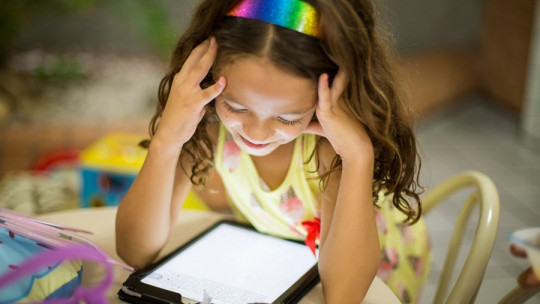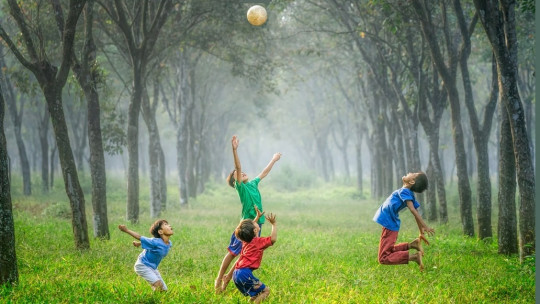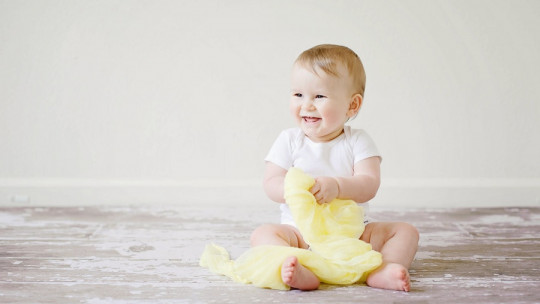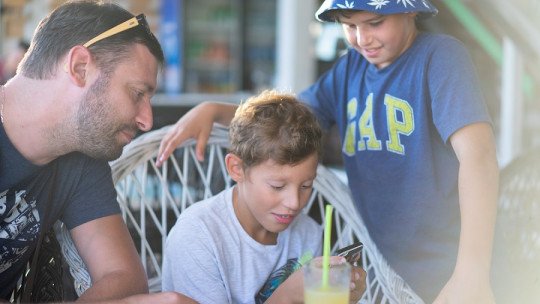Our parks fell silent and the revelry of laughter, laughter and challenges abruptly withdrew. Screens sprung up in homes and technological and virtual leisure conquered our living rooms and rooms.
In the face of a complex and alarming situation, the first responses that emerge are pure survival responses that have lasted and have left their mark and side effects.
Now we have to return to the exterior and the relationship; I would say that always, but especially in childhood and adolescence, free movement and connection in relationships are essential to fill us with vibrant energy to be interested in the world, explore and achieve development goals. There is no relationship without connection
The importance of play in our development
From different philosophical, biological and psychological approaches, they have recognized the value of play in child development especially face-to-face play.
All baby mammals enjoy contact games, staring, roaring. These face-to-face games enable learning and social improvement.
In these face-to-face interactions, battles and confrontations arise that involve risks. In this interaction between pairs they encourage each other, the energy grows, and thus both the animal puppies and the humans actively explore and generate unexpected, surprising and challenging situations through play
These sought-after or unexpected situations can involve risk, challenges and dangers which are experienced in the game; whether in battles with monsters, or enemies that lead to dealing with wars, injuries and death.
Facing these situations allows us to experience novel, adaptive responses, in addition to negotiating agreements and rules Doing all this learning in the safe environment of the game is a plus.

Emotional implications of the game
Chateau (1967) stated that morality develops through play. By accepting, by following a rule developed in the game, for the common good of the players, children They are expressing and training the human capacity to create community, civilization Morality is developed through social interactions with peers during play.
The game promotes playful, pleasant, satisfying experiences, full of joy. Emotion that facilitates both emotional and cognitive opening.
These satisfying and playful experiences promote resilience, since they promote the development of creativity by opening the possibility of interpreting and experimenting with new, unexpected solutions to the problems that arise during the game. The game trains the ability to think flexibly and creatively in the face of the changing demands of the game itself.
The dynamic game of childhood requires its players, the protagonists of the action, to adapt , especially in moments of intense emotion or stress, to the activation of children’s play. Play promotes adaptation to uncertainty since it is itself unexpected and one cannot anticipate the course it will take.
Therefore, The game promotes and increases cognitive and emotional versatility , especially in times of loss of control and maximum stress. If in those moments where it seems that there is no way out and creativity gives an unexpected turn to the game that excites and frustrates, the very dynamics of the game require managing those emotions; in addition to continuing with the framework of the game, at times fun and at others perhaps scary.
Social implications of the game
One of the games that has received the most attention is role-playing. This game leads us to play, to dream of being a hero, villain, firefighter, teacher, thief. Through the interpretation of characters and different roles, children can develop empathy
Empathy is that ability to see and experience the world from the eyes and shoes of the other, from the playmate, who can be, in that created world, a terrible enemy or a faithful ally.
Throughout this play interaction, the child learns to discover the motivations of others, to understand other perspectives and needs and take them into account in their interrelationship.
Studies and research carried out on the game have shown the relationship between play and the ability to regulate and control behavior Preschool children who play more or more complex games obtain higher scores on several variables associated with self-regulation (Fantuzzo, Sekino, & Cohen, 2004).
Self-regulation and self-control are related to the ability to calm thoughts and emotions or control feelings, impulses or behaviors. And the ability to self-regulate is positively associated with good social and academic competence in the childhood.
A foundation on which to grow emotionally
Among the greatest advantages of the game we find the possibility of creating countless experiences full of positive emotions, joy, satisfaction, pride, joy. Studies such as that of Carlson and Masters have shown the relevant role that positive emotions have in the face of subsequent negative experiences. Positive emotions behave as a protective agent, generating a relief effect in the face of subsequent negative experiences and emotions
Thus, having experience where positive emotions are experienced increases the possibility of issuing coping responses in the face of adversity. (Tugade, Fredrickson and Barrett, 2004).
And as it could not be otherwise, research shows what the body knows and sometimes parenting customs deny and that is that play promotes prosocial, social, cognitive and emotional aspects of child development, especially when adults participate in their children’s play, Fischer (1992).
Conclusion
Let’s play, let them play, laugh, jump, cry and let the energy of joy and life be transmitted throughout their body and flood the houses and parks.
Yes, let’s play, Let’s promote games with our children that involve interaction, connection, risks, challenges, rules, patience and also No action Moments of boredom, with nothing to do, nothing to see, without clicking on any clips, and let’s make it easier for time to pass.
Let’s look for times without screens and without technology where they discover and connect with each other and with the adults present there. Let us be present without being omnipresent
Author: Cristina Cortés Viniegra, Director of Vitaliza Health Psychology. Psychologist specializing in Children and Adolescents.









